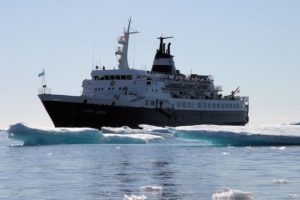Death on the High Seas Act
Death On The High Seas Act – Explained
Wrongful death claims are brought by families of the victim to compensate them for the loss of a loved one due to the negligence or recklessness of the defendant.
 The Death on the High Seas Act (“DOHSA”) provides similar relief for the families of workers killed due to negligence or wrongful acts while on a vessel operating in international waters. For DOHSA to apply the victim must have been killed on a vessel more than 12 nautical miles from the shores of the United States.
The Death on the High Seas Act (“DOHSA”) provides similar relief for the families of workers killed due to negligence or wrongful acts while on a vessel operating in international waters. For DOHSA to apply the victim must have been killed on a vessel more than 12 nautical miles from the shores of the United States.
Who Is Eligible To Collect Benefits?
The only people eligible to collect benefits under DOHSA are the surviving spouse, children or dependent relatives.
What Types Of Legal Damages Are Available?
Damages are limited to economic damages that can be proven through accounting evidence, such as:
- Loss of contributions the deceased would have made;
- Loss of future earnings, retirement and social security benefits;
- Loss of household services that would have been performed by the victim, such as repair and maintenance of the home or providing transportation to family members;
- Funeral and other expenses associated with the death.
- Loss of care, nurture, and guidance;
- Costs of college education for dependent children (some courts);
- Loss of inheritance from the accumulation of the deceased’s estate.
Benefits that directly affect the children of victims include:
Generally, children recover damages for support and ongoing care up until the age of majority (18 years old). Some courts have provided such benefits up until the age of 22, which is considered reasonable under certain circumstances.
Damages That Are NOT Available Under DOHSA
Claimants may not seek damages under DOHSA for loss of consortium, mental or emotional anguish or bereavement. Such damages available under other laws are preempted by this legislation.
Common DOHSA Claims
The incidents that most commonly lead to DOHSA claims include:
- Ships sinking or capsizing;
- Fires or explosions onboard the vessel;
- Defective or faulty equipment;
- Lack of safety procedures or failure to follow such plans;
- Untrained personnel or failure to care for an injured worker.
If your loved one was killed on a ship in international waters then you should consult with a lawyer immediately. You may be entitled to compensation under the Death on the High Seas Act. Our maritime lawyers work directly with you to ensure the best possible claim and outcome. Contact our firm today for a free consultation.





